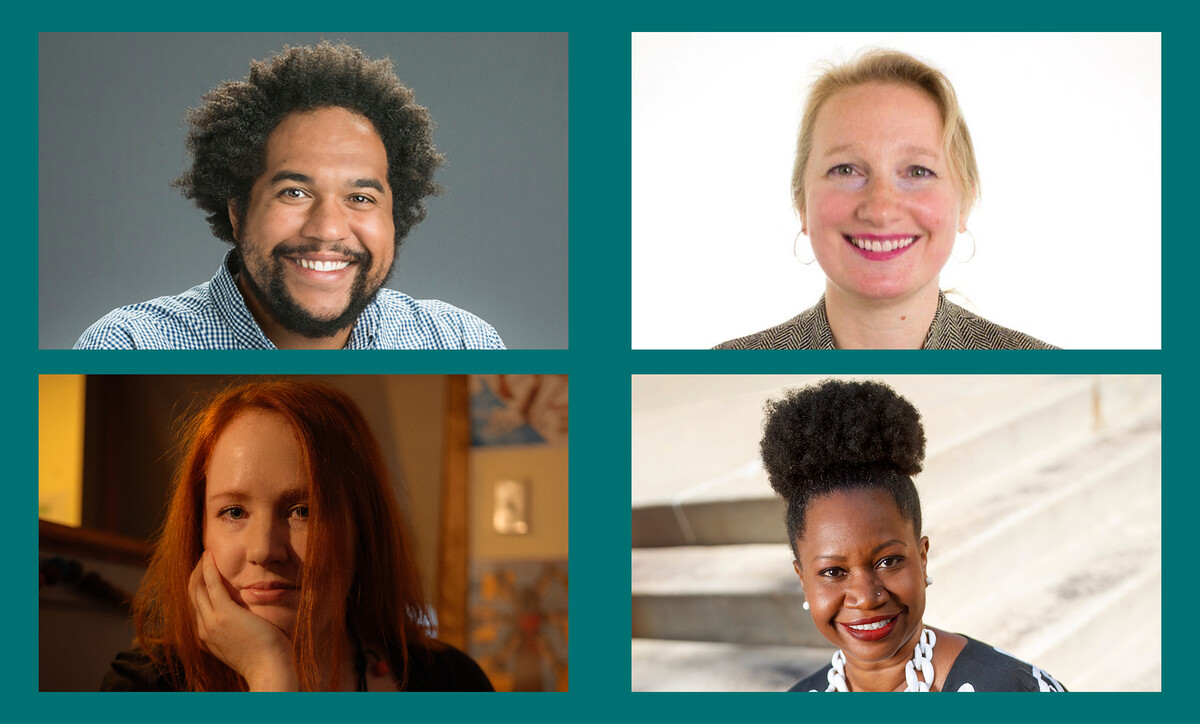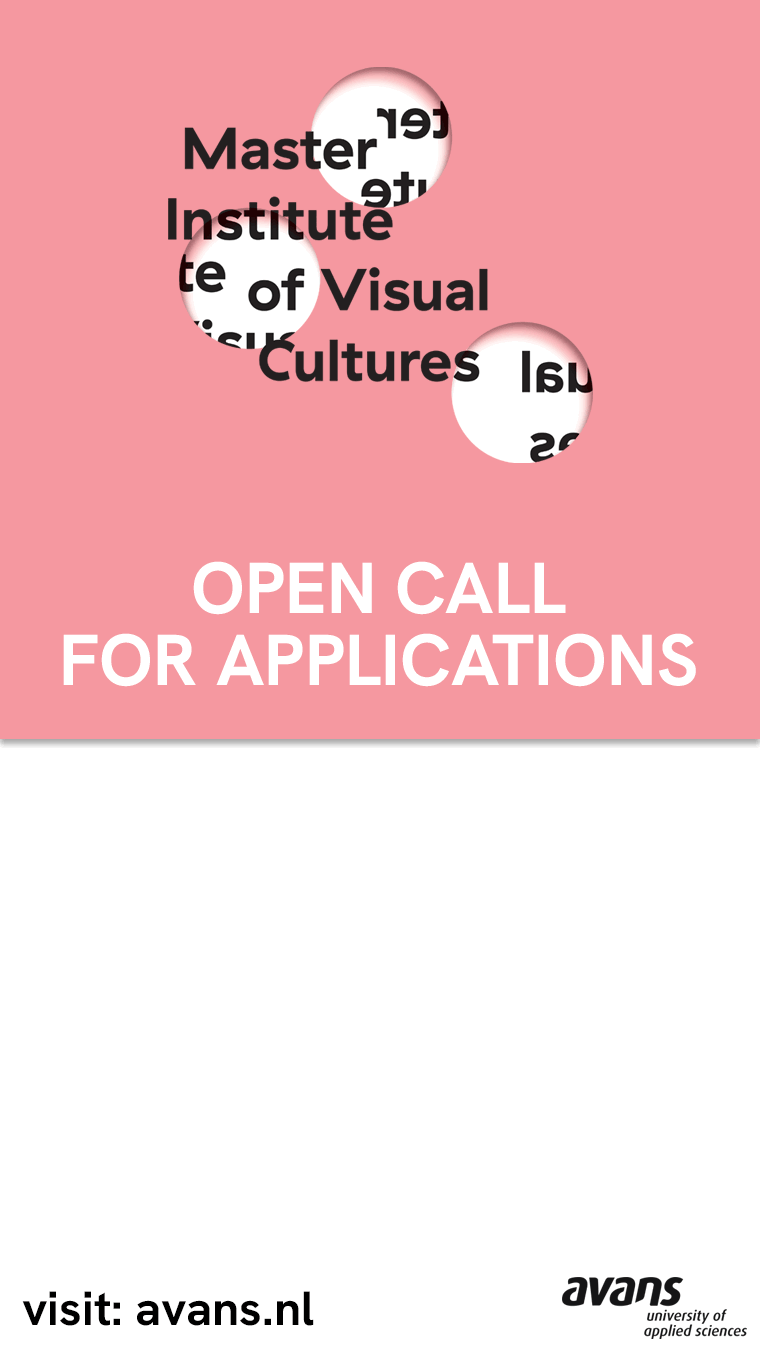February 24–March 17, 2022
Instagram / Facebook / Twitter / Vimeo / #bemis / #bemiscenter / #idontknowyoulikethat / #bodyworkofhospitality
Bemis Center for Contemporary Arts is pleased to present the four-part lecture series Flesh it Out: The Body, Hospitality, and the Material Entanglements featuring Norman Ajari, Sophie Lewis, Irina Aristarkhova, and Deirdre Cooper Owens’s latest research developed in dialogue with the exhibition I don’t know you like that: The Bodywork of Hospitality. All events are free, and held in person and on Zoom.
Norman Ajari, Hosts of the Dead. Black Thought as Necromancy
February 24, 7–8:30 PM CT, University of Nebraska Omaha and Zoom.
A lecture by Norman Ajari followed by Nikitah Okembe-RA Imani’s response and a Q&A.
In 1814, in the newly sovereign kingdom of Haiti, Baron de Vastey published The Colonial System Unveiled, the first systemic critique of colonialism written from the perspective of the colonized. Calling out the former French colonists, he describes his intellectual endeavor as follows: “I shall awaken the remains of the numerous victims you thrust into the grave and borrow their voices so that I might unveil your foul deeds. I shall exhume those poor wretches you buried alive.” If necromancy is defined as the ritual or magic practice of communicating with the deceased, endangering the frontier between life and death, then historically, modern Black critical thought could be defined as a singular form of necromancy. Drawing from examples from the period of chattel slavery through the 21st century, Ajari will discuss both the constancy of invocations of the dead throughout the history of Black thought, its liveliness, and numerous functions. Because of the ever-present proximity of execution, the difficulties to mourn the dead, and distinctive religious and artistic imaginaries of the hereafter, which all defined their existence, people of African descent have often re-imagined necromancy as first philosophy. In the process, the haunting proximity of death is turned into an opportunity for humanization and empowerment.
Norman Ajari is Lecturer in Francophone Black Studies at the University of Edinburgh. His first book, La Dignité ou la Mort: Éthique et politique de la race, was published in 2019 and will soon be available in English (Polity Books). He is a member of the Frantz Fanon Foundation’s international board.
Respondent: Nikitah Okembe-RA Imani is Professor and former Chair of Black Studies at the University of Nebraska Omaha.
Sophie Lewis, What Goes Around Comes Around: Fleshy Toxicities Return Home as Kin
March 3, 7–8:30 PM CT, in person and on Zoom.
A lecture by Sophie Lewis followed by Jean Amoura’s response and a Q&A.
Living human fetuses, conceptualized as genetically “authored” private property, are among the many commodities whose manufacture can now be outsourced to the Global South under capitalism. One of the locations where commercial gestational surrogacy “production” occurs is, as it happens, Bhopal, India, an area synonymous with a giant gas leak. As environmentalists attempted to make known throughout the 1980s and 1990s, the so-called Bhopal disaster was inflicted on the Bhopali population by the Union Carbide corporation (a subsidiary of Dow Chemical) in 1984. Today, as the feminist neuroscientist Deboleena Roy has shown, the poisonous methyl isocyanate from the gas leak continues to exert its effects on the reproductive biology of women, men, and children in Bhopal. It is making its way back to the Global North via the bodies of “surro-babies” commissioned by, for example, European and American parents. What can this circuit of historic molecular violence, whereby toxicity is returned to its place of origin through the labors of gestating Indian bodies, tell us about the vengeful dimensions of hospitality? How might we think with, against, and beyond the category of “kinship” with our toxic, cyborg children, and their poisoned mothers?
Sophie Lewis is a visiting scholar at The Alice Paul Center for Research on Gender, Sexuality and Women at the University of Pennsylvania, and a member of the teaching faculty of the Philadelphia branch of the Brooklyn Institute for Social Research. She is the author of Full Surrogacy Now: Feminism Against Family (Verso Books, 2019), which Donna Haraway hailed as “the seriously radical cry for full gestational justice that I long for.”
Respondent: Jean Amoura is Professor of Obstetrics and Gynecology at the University of Nebraska and Director of Nebraska Medicine’s Early Pregnancy Assessment Clinic and the Gender Care Clinic.
Irina Aristarkhova, Technics of Self-Welcome in Contemporary Art
March 10, 7–8:30 PM CT, in person and on Zoom.
A lecture by Irina Aristarkhova followed by Kristin Gertin’s response and a Q&A.
Irina Aristarkhova recalls how one of her students once said, “Mother is like a fridge. You go there and open the door when you need something.” For their final project, the students in their class created a prototype of a future parent, a combination of hardware (objects, robots, bodies, and personal assistants like Alexa) and software (all kinds of soft things, including a soft-voiced “What would you like, dear?,” a smile, and a waiting pause of attentive listening). This student’s remark was telling in its imaginative succinctness. Various traditions and philosophies of hospitality reveal a similar sentiment: they posit a fundamental link between the mother, the cultural sense of porousness, and collective ownership of the maternal mind/body.
In this lecture, Aristarkhova engages with the works in I don’t know you like that: The Bodywork of Hospitality, especially Stephanie Dinkins’s Bina48, to propose the idea of “self-welcome.” That is, in addition to redefining our cultural traditions to provide hospitality—with its rights and privileges—to previously unwelcomed groups, Aristarkhova presents self-welcome as a generative framework of possibilities for thought and action. She develops self-welcome as an idea and practice of establishing new boundaries and creating new configurations of the self under changing cultural conditions. Where does the self end? Where does the non-self begin? Where does an object end? Where does its environment begin?
Irina Aristarkhova is an Associate Professor at the Penny W. Stamps School of Art and Design at the University of Michigan, Ann Arbor, where she also teaches at the Digital Studies Institute. She is the author of Arrested Welcome: Hospitality in Contemporary Art (University of Minnesota Press, 2020) and Hospitality of the Matrix: Philosophy, Biomedicine, and Culture (Columbia University Press, 2012).
Respondent: Kristin Girten is an Associate Professor of English and Assistant Vice Chancellor for the Arts and Humanities at the University of Nebraska Omaha.
Deirdre Cooper Owens, Slavery’s Hospitality and the Extraction of the Black Body
March 17, 7–8:30 PM CT, University of Nebraska Omaha and on Zoom.
A lecture by Deirdre Cooper Owens followed by Jennifer Harbour’s response and a Q&A.
As an institution, racialized chattel slavery in the United States existed to serve the interests of the slaveholding elite. The extraction of Black people’s labor rested on white people’s ideas about the hospitable nature of Black servility and Black bodies. Black people’s reproductive labor helped form the basis of what Cooper Owens terms the “medical superbody.” Specifically, enslaved women’s bodies, deemed to possess masculinized strength, were regarded as vessels for the proliferation of slavery and as sites to develop cures for white women. Further, Black people were seen as both inferior (intellectually and morally) and superior (physically). As a result, they were typically described as able-bodied subjects. Yet, the inhospitable and extractive nature of slavery also created disabled Black bodies. But disability, as seen through non-normative bodies, is the ultimate sign of unsuitability in slavery. How do we make sense of this contradiction? Using disability studies and Black feminist theory, Cooper Owens will interrogate how notions of hospitality, labor, and ability/disability informed ideologies about Black productivity, value, and life.
Deirdre Cooper Owens is the Charles & Linda Wilson Professor in the History of Medicine and Director of the Humanities in Medicine Program at the University of Nebraska-Lincoln. She is also Director of the Program in African American History at The Library Company of Philadelphia. Her award-winning book Medical Bondage: Race, Gender and the Origins of American Gynecology has just been translated into Korean.
Respondent: Jennifer Harbour is Associate Professor in the Department of Black Studies and Director of Ombuds Services at the University of Nebraska Omaha.
I don’t know you like that: The Bodywork of Hospitality and its related public programs are supported, in part, by The Andy Warhol Foundation for the Visual Arts, Canada Council for the Arts, Conseil des arts et des lettres du Québec, Institut français-Paris, Nebraska Arts Council and Nebraska Cultural Endowment, and Omaha Steaks. The exhibition is on view through March 20, 2022.
Developed by the exhibition’s curator Sylvie Fortin, this lecture series is co-presented by Bemis Center for Contemporary Arts and UNO Medical Humanities/Ted Kooser Center for Health Humanities with generous support from Humanities Nebraska.







